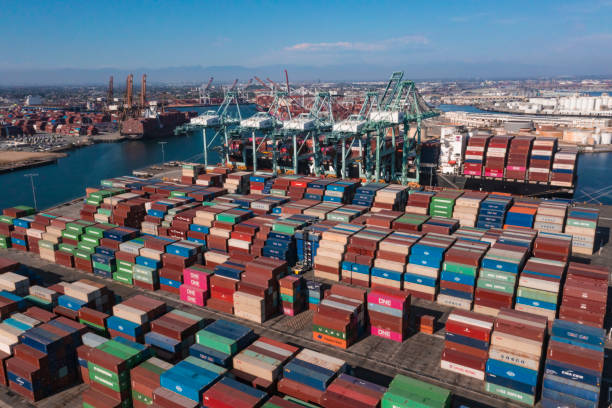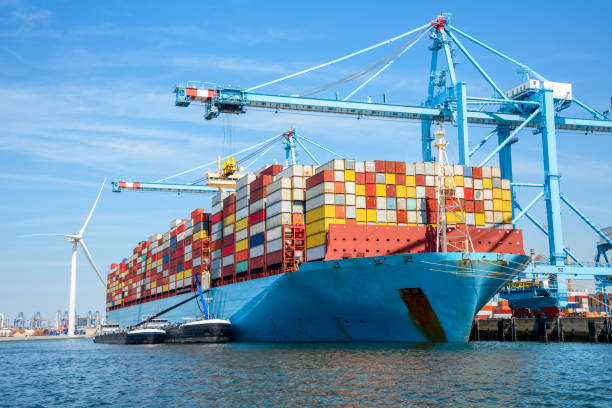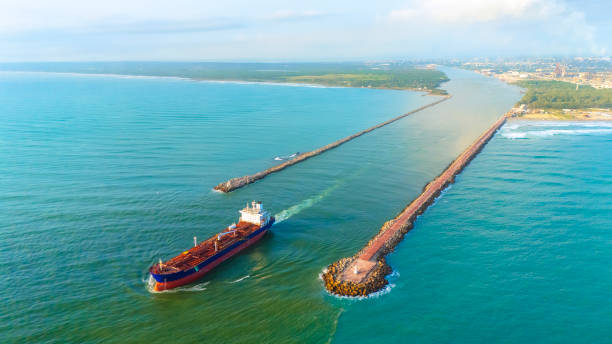Freight delays and supply chain disruptions can create chaos for businesses. Whether it’s port congestion, unpredictable weather, or customs bottlenecks, these challenges can impact deliveries, drive up costs, and frustrate customers. But rather than letting delays disrupt operations, businesses can take control by working with international forwarding companies, leveraging international forwarding tracking, and partnering with a reliable international forwarding supplier.
Let’s explore proven strategies to manage freight delays effectively, ensuring your supply chain stays resilient no matter what obstacles arise.

1. Why Do Freight Delays Happen? Understanding the Key Disruptors
Freight disruptions often feel unpredictable, but in reality, they tend to fall into a few common categories.
Port Congestion – Busy international trade routes often experience backlogs, causing shipping delays.
Customs Clearance Issues – Incorrect paperwork or changing regulations can keep cargo stuck at the border.
Extreme Weather Conditions – Storms, hurricanes, and floods frequently affect air and sea freight schedules.
Supply Chain Bottlenecks – Shortages in containers, labor strikes, or transport delays can slow down movement.
Geopolitical and Regulatory Changes – Trade restrictions, embargoes, and tariff adjustments can disrupt freight routes.
By identifying these risks early, businesses can proactively plan and avoid major supply chain setbacks.

2. Gain Control with Real-Time International Forwarding Tracking
One of the biggest frustrations with freight delays is the lack of visibility— not knowing where a shipment is or when it will arrive. The solution is advanced international forwarding tracking technology.
GPS and IoT-Based Tracking – Enables businesses to monitor shipments in real time.
Predictive Analytics – AI-powered insights help forecast delays before they happen.
Automated Notifications – Instant alerts from your international forwarding supplier keep you updated on any changes.
By using digital freight tracking tools, businesses can stay one step ahead and make informed decisions to minimize disruptions.

3. Work with Reliable International Forwarding Companies for Flexible Solutions
Choosing the right international forwarding supplier is critical when dealing with delays. A good forwarder offers:
Alternative Shipping Routes – Quick rerouting options if a port is congested.
Multi-Modal Transport – Seamless switching between sea, air, and rail freight when needed.
Customs Clearance Expertise – Ensuring fast, compliant processing to avoid regulatory delays.
Strong Carrier Networks – Reliable partnerships with shipping lines for priority handling.
For example, a European retailer faced a delay at a major Asian port. Their freight forwarder quickly arranged an alternative route via air freight for high-priority shipments, keeping their supply chain on track.

4. Build Resilience: Diversify Shipping and Inventory Strategies
Overreliance on a single shipping route or supplier can increase vulnerability to disruptions. To enhance supply chain resilience, businesses should:
Use Multiple Shipping Carriers – Working with more than one international forwarding company provides backup options.
Adopt Nearshoring or Regional Warehousing – Storing inventory closer to key markets helps avoid long-distance delays.
Implement Demand Forecasting – AI-driven tools predict inventory needs, helping businesses prepare for peak demand.
Leverage Freight Consolidation – Grouping shipments reduces costs and optimizes space in cargo containers.
5. Strengthen Supplier and Customer Communication
When delays happen, communication is essential. Keeping stakeholders informed helps manage expectations and avoid customer dissatisfaction.
Proactive Customer Updates – Notify clients of delays and revised ETAs.
Freight Forwarder Coordination – Work closely with your international forwarding supplier to find solutions.
Internal Team Alignment – Ensure sales, logistics, and warehouse teams are on the same page.
Companies that maintain transparent communication not only retain customer trust but also improve their reputation in the industry.

6. Plan for the Unexpected: Implement Risk Management Strategies
Every business should have a contingency plan to minimize the impact of freight disruptions. Key strategies include:
Contracting with Multiple Forwarders – A diversified network means more options in case of unexpected delays.
Investing in Freight Insurance – Protects shipments from unforeseen losses.
Scenario Planning – Preparing alternative supply chain strategies for different delay scenarios.
Final Thoughts: Turn Challenges into Competitive Advantages
Freight delays and supply chain disruptions are inevitable, but they don’t have to cripple your business. By leveraging international forwarding tracking, working with reputable international forwarding companies, and implementing resilient supply chain strategies, businesses can navigate delays with confidence.
In a fast-changing logistics landscape, adaptability is the key to success. Those who prepare for disruptions will not only survive but thrive in global trade.
Is your business ready to handle freight delays efficiently? Start optimizing your supply chain today.




















